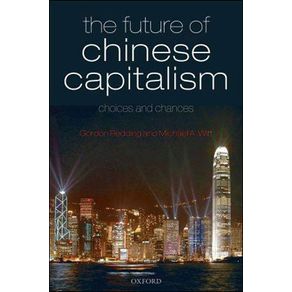Much has been said about the re-emergence of China to its historical position of eminence in the world economy, yet little is understood about the kind of economic system China is evolving. What are the rules of the game of business in today's China, and how are they likely to change over the next decades? The answers to these questions are crucial to business persons formulating strategy toward China, but also for policy-makers concerned with retaining the competitiveness of their nations in the face of Chinese competition and for researchers seeking to gain deeper insights into the workings of economic systems and institutional change. Written by two leading experts in the field, this book sheds much-needed light on these questions. Building on recent conceptual and empirical advances, and rich in concrete examples, it offers a comprehensive and systematic exploration of present-day Chinese capitalism, its component parts, and their interdependencies. It suggests that Chinese capitalism, as practiced today, in many respects represents a development from traditional business practices, whose revival has been greatly aided by the influx of investments and managerial talent from the Regional Ethnic Chinese. On the basis of present trends in the Chinese economy as well as through comparison with five major types of capitalism - those of France, Germany, Japan, Korea, and the United States - the book derives a prediction of the probable development paths of Chinese capitalism and its likely competitive strengths and weaknesses.



